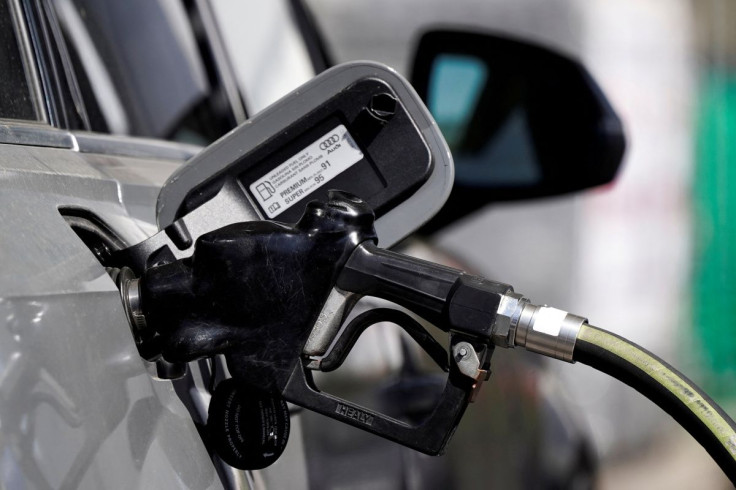Gas Price Prediction: $5 'Possible' Across US, 4 States Already Above That Rate
KEY POINTS
- Gas prices have gone up by 27% since Feb. 23, the day before Russia invaded Ukraine
- The price of diesel also hit a record cost of $5.568 per gallon Monday
- An expert said gas prices may change depending on developments in the war or with COVID-19
Gasoline prices could continue to rise across the United States, with experts predicting the price per gallon could reach $5.
The national average for regular gas hit a record $4.483 per gallon Monday, making a 15-cent increase over the past week and a 40-cent increase over the past month. Gas prices have also gone up by 27% since Feb. 23, the day before Russian President Vladimir Putin announced the invasion of Ukraine, according to AAA.
Apart from the increase in the price of regular unleaded gas, the price of diesel also hit its own highest recorded cost, which was $5.568 per gallon Monday.
Andy Lipow, president of Lipow Oil Associates, has forecasted that car owners may be greeted with record-high prices on Memorial Day weekend, adding that the U.S. may see gas prices reach $5 per gallon. However, he noted that the outlook could change depending on developments in the conflict between Russia and Ukraine or with the COVID-19 pandemic.
"Everything is pointing toward even higher prices. We are well on our way toward $5," Lipow told CNN.
The average gas price per gallon has already exceeded $5 in four U.S. states, specifically California, with $5.983; Washington, with $5.033; Nevada, with $5.179; and Hawaii, with $5.316. Oregon is also near hitting the $5 per gallon rate. As of Monday, the gas price per gallon in Oregon state was $4.999.
Experts say the latest jump in gas prices is linked to several factors, including a lack of oil refiners making crude oil into gasoline.
"With the market currently really tight both in diesel and jet fuel, we’re actually seeing refineries choose to make less gasoline in favor of those more profitable molecules," Matt Kimmel, a senior research analyst for refining and oil markets at Wood Mackenzie, told The Hill.
Patrick De Haan, head of petroleum analysis at GasBuddy, attributed the rising prices to recent refinery closures in the U.S. Three refineries have closed since 2019 due to a fire incident, flooding and the COVID-19 pandemic.
"The U.S. has now a million barrels a day less of refining capacity than we did in 2019 at a time when we need every barrel of capacity," De Haan added.

© Copyright IBTimes 2025. All rights reserved.






















